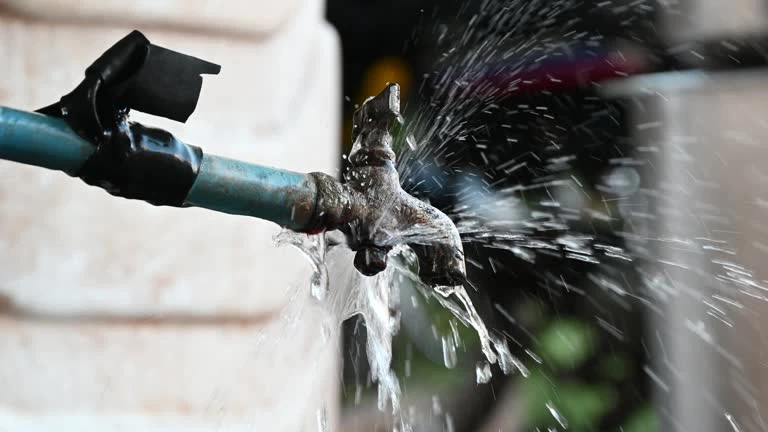Introduction
Water Pipe In recent months, Atlanta has faced significant challenges due to the failure of aging water infrastructure. The city reported that several water pipes that broke were nearly a century old, raising concerns about the reliability of the water supply and the safety of the community. This article explores the implications of aging water pipes, the impact of such failures on residents, and the steps that can be taken to address these critical issues.
The State of Atlanta’s Water Pipe Infrastructure
Atlanta’s water infrastructure has a rich history, with many of its pipes installed during the early 20th century. While these pipes served the city well for decades, the passage of time has taken its toll. The materials used in older pipes, such as cast iron and lead, are prone to corrosion and failure, leading to leaks and breaks.
The Age of the Water Pipe
According to city officials, some of the water pipes that recently broke were nearly 100 years old. This age is significant, as the lifespan of water pipes typically ranges from 50 to 100 years, depending on the material and environmental conditions. As these pipes age, they become increasingly susceptible to failure, which can result in costly repairs and disruptions to the water supply.
Common Causes of Water Pipe Breaks
Several factors contribute to the breaking of aging water pipes:
- Corrosion: Over time, pipes corrode due to exposure to water and soil conditions. This corrosion weakens the pipe walls, making them more likely to break under pressure.
- Temperature Changes: Fluctuations in temperature can cause pipes to expand and contract, leading to stress fractures. In Atlanta, seasonal temperature changes can exacerbate this issue.
- Increased Demand: As the population of Atlanta continues to grow, the demand for water increases. This heightened demand can put additional stress on aging infrastructure, leading to failures.
- Poor Maintenance: Regular maintenance is crucial for the longevity of water pipes. However, budget constraints and resource limitations can hinder maintenance efforts, resulting in undetected issues that lead to breaks.
The Impact of Water Pipe Breaks
The breaking of water pipes can have far-reaching consequences for the community. Here are some of the key impacts:

1. Disruption of Water Supply
When a water pipe breaks, it can lead to significant disruptions in the water supply. Residents may experience reduced water pressure or complete loss of water service, affecting their daily activities, including cooking, cleaning, and sanitation.
2. Property Damage
Water leaks from broken pipes can cause extensive damage to homes and businesses. Flooding can lead to structural issues, mold growth, and costly repairs. Property owners may face significant financial burdens as a result of these incidents.
3. Public Health Concerns
Disruptions in the water supply can create public health concerns. Without access to clean water, residents may struggle to maintain proper hygiene, increasing the risk of illness. Additionally, contaminated water from breaks can pose serious health risks.
4. Economic Impact
The economic implications of water pipe breaks can be substantial. Businesses may experience closures or reduced operations due to water supply issues, leading to lost revenue. The cost of repairs and increased utility bills can strain household budgets, impacting the overall economy of Atlanta.
Addressing the Aging Water Pipe Infrastructure
To mitigate the risks associated with aging water pipes, Atlanta must take proactive steps to address its water infrastructure challenges. Here are some strategies that can be implemented:
1. Comprehensive Assessment
Conducting a thorough assessment of the city’s water infrastructure is essential. This assessment should identify aging pipes, prioritize areas for replacement, and evaluate the overall condition of the water system.
2. Increased Funding for Repairs
Securing funding for infrastructure repairs is crucial. Local and state governments should prioritize investments in water infrastructure to ensure that aging pipes are replaced and maintained. Federal funding opportunities may also be available to support these efforts.
3. Community Engagement
Engaging the community in discussions about water infrastructure is vital. Residents should be informed about the state of the water system, the risks associated with aging pipes, and the steps being taken to address these issues. Community input can help shape priorities and foster support for necessary changes.
4. Water Pipe Implementation of Modern Technologies
Investing in modern technologies can enhance the monitoring and maintenance of water infrastructure. Smart sensors and data analytics can help detect leaks and assess the condition of pipes in real-time, allowing for timely repairs and reducing the risk of breaks.
5. Long-Term Water Pipe Planning
Developing a long-term plan for water infrastructure is essential. This plan should outline strategies for replacing aging pipes, improving maintenance practices, and ensuring the sustainability of the water supply for future generations.
Conclusion
The recent breaking of nearly 100-year-old water pipes in Atlanta highlights the urgent need for action to address the city’s aging water infrastructure. By understanding the implications of these failures and implementing proactive measures, Atlanta can work towards ensuring a reliable and safe water supply for its residents. As the city moves forward, it is essential to prioritize investments in infrastructure, engage the community, and adopt modern technologies to safeguard the future of its water system.
FAQs
1. What causes water pipes to break?
Water pipes can break due to corrosion, temperature changes, increased demand, and poor maintenance.
2. How old are the water pipes that broke in Atlanta?
Some of the water pipes that broke in Atlanta were nearly 100 years old.
3. What are the impacts of broken water pipes on residents?
Broken water pipes can disrupt the water supply, cause property damage, create public health concerns, and have economic implications.
4. How can Atlanta address its aging water infrastructure?
Atlanta can address its aging water infrastructure by conducting assessments, increasing funding for repairs, engaging the community, implementing modern technologies, and developing long-term plans.
5. What should residents do if they experience water supply disruptions?
Residents should report water supply disruptions to their local water utility and follow any guidance provided regarding water use and safety during repairs.


















